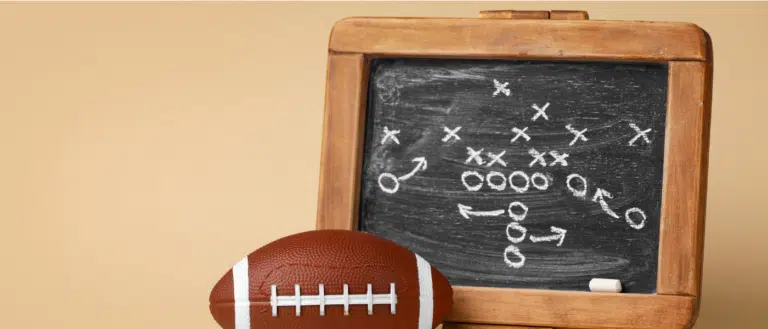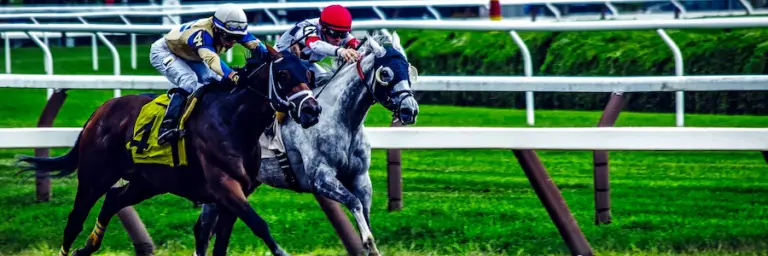Can You Use Vegas Odds to Create Smart DFS Lineups?

Sports betting and daily fantasy sports have a lot of crossover when it comes to how one can correlate with another, but the skills earned in one do not translate perfectly to success in the other. Each has its own quirks and requisite skills.
That being said, you want to learn exactly how to use things like odds, totals, team totals, and prop bets to your advantage when attacking DFS on a daily basis.
The vast majority of top-end players in the DFS space rely heavily on Vegas to do a lot of their heavy lifting. They are often quick to implement their team totals and betting odds into their models to determine things like game-script and accurate projections in different sports.
You will find a few high-end players that have put in a significant amount of time into building models and things similar to what Vegas will use to attempt to perfect their process even more and possibly be a bit different.
This can work if you are advanced in many different aspects such as statistics, modeling, programming and more, but it is not something that I would advise to the general public. Your results in this work will generally be close to Vegas at the end of the day anyway, or at least they probably should be.
Sharp players use Vegas because Vegas has much more knowledge than almost everyone else in the industry when it comes to the volume of information. There are plenty of people working countless hours to produce betting lines of all sorts, so assuming that these hundreds of people working in a professional setting are getting it right is generally a good practice.
Vegas has big wins and big losses, just like you could have by following them in both sports betting and daily fantasy sports, but Vegas always comes out on top.
I do believe that using betting lines of all sorts is hugely overblown in a lot of sports in different ways, and it is possible to give too much weight to the numbers that a sportsbook provides you in certain sports.
However, using Vegas is going to be much better as a whole than completely ignoring it. I prefer to try and understand their process and why they are coming up with the results they are.
Sometimes, Vegas misses things, and you could have figured them out if you weren’t so reliant on their results. Capitalizing on when you genuinely think Vegas is off can result in some of your biggest paydays at the sportsbook and in fantasy sports, so don’t be afraid to be different at times.
Using Football Betting Lines in DFS
In both college and the NFL, Vegas is a very good way to try and get a grasp of the game-script. I would argue that fantasy football is the most game-script dependent option in all of DFS, so you want to use Vegas to get a feel on how these games are supposed to play out. These odds will almost always help you find chalk for the week, which is nice too.
If the Cowboys are 14-point favorites in a 55 total game against the Buccaneers this week, you can instantly assume Ezekiel Elliott is one of the most popular plays on the slate. Other people can see the same Vegas line that you can, so just continually following these lines will probably make your lineups chalky.
The first thing I do when creating an NFL lineup is trying to think of the story that I want to tell with that lineup, and I do that by looking at what Vegas thinks the story of the week will be. If they think the over/under of the Patriots/Saints game is 57.5, I immediately know it’s likely to be a chalky game and a great game to attack.
If you don’t agree with this line, you should try to find out WHY. Why does Vegas think this is going to be a high scoring game when I think it might be more running back dominated? Once you dig and find out why Vegas thinks that, then you need to reflect on your initial idea and see if you still hold true to your initial feelings on the matchup.
If you believe Vegas is clearly missing something you think you know, attacking it by fading the mega-chalk game provides you a ton of upside in GPPs (see this post for more on winning GPPs).
Just remember that Vegas is a machine with way more resources and information than you, so they often have a very strong method to their madness.
Vegas will also lay out things like a touch projection for your team by predicting the total and the betting odds. You will need to figure out what the total means for each player in the game and try to use that insight to your advantage. You have a winning entity telling you that the Rams are going to score 33 points against the Cardinals tomorrow afternoon.
Try and see what that kind of game-script leads to for both teams. If I see the Rams are a 13-point favorite over the Cardinals with a 53-point total, I immediately start thinking about the Rams running game and the Cardinals passing options.
Why? The Rams are projected to score a lot and lead most of the game. It is reasonable to assume that the Rams will run a lot with a big lead and that the Cardinals will try to catch up through the air.
The flip side to this coin is understanding the ownership of the play you want to attack. Depending on the slate, maybe Todd Gurley is the top option by far because of these odds. Well, if the Rams pass-catchers are 5% owned and Gurley is 40% owned, hoping that the Vegas team total is accurate, but the game script is not may be an advantage.
Vegas is not always right, so if people are overweighting Vegas, it is okay to stray away from the beaten path in GPPs.
I would put almost 0 stock into player props for all sports and particularly the NFL. I have found the fantasy community as a whole probably would provide significantly better lines than sportsbooks do, and I would stand by that.
I actually think that betting on NFL player props early in the season is an extremely profitable venture, contrary to almost anything else in a sportsbook. Player props often have small limits, and they don’t carry much weight at all to the sportsbook’s bottom line, so they aren’t given the same attention by the oddsmakers and big-time bettors.
If there is ever talk about a strange player prop in relation to fantasy, I would have zero interest in changing my opinion of the situation.
Using Basketball Odds in DFS
The NBA betting lines offer what is probably the most straightforward path for converting odds into useful DFS data. I would use the Vegas total to determine the likely pace of the game and how many possessions you think a team will get, along with how many points they will likely score.
In basketball, there is much less outlier in terms of the total of the game. It is very easy to just take the totals for face value and basically move on with your interpretation of who will take advantage of that pace and scoring.
The odds and spread do matter a lot in daily fantasy basketball because you have to account for a potential blowout. If a game is a pick ’em, I would project the game straight-up like there is no blowout possibility. If the Warriors are 14-point favorites in Phoenix with a 239 total, that makes me a little more timid to play multiple Warriors.
That is a fantastic total against a lousy defense, but that line means that they think that 50% of the time, the Warriors will win the game by more than 14. If the Warriors are up this much in the 4th quarter, you could see 0 minutes from Steph Curry, which turns his fantastic 45 fantasy points in 3 quarters into just 45 points in a game. You need to be aware of the blowout and benching risk in the NBA, and Vegas gives you precisely what you need to be prepared.
Baseball, Soccer, and Hockey Lines
These three sports share a few similarities that I think are important to touch on. A lot of these strategies can be used in other sports, but one that I think is most valuable for these three sports is the understanding of the total. A Vegas total is a MEDIAN projection, in an attempt to nail the 50th percentile outcome.
When most people talk about totals, they discuss them like they are discussing a mean or average. Sorry if this sounds like 7th grade all over again, but these are not the same, and I think it is vital to understand the variance in these sports.
Baseball has higher scores, so it is the best example here. Soccer and Hockey are both lower totals sports, but they have similar variance, and similar lineup builds with stacks and upside. Not all 4.7 run team totals are the same, but they are hard to differentiate.
Let’s say we took Max Scherzer and put him on a team with a bunch of college relievers for a seven-inning game. This hypothetical is to make it a more dramatic comparison, but it can be related to even small differences. The Vegas median total would be much different than the mean total. In all likelihood, 80% of these starts, Max Scherzer pitches all seven innings, and his projected run total is about 3 in each game.
The issue is that in the other 20% of starts. Scherzer gets roughed up, and then the bullpen is horrible. In this 20 %, the expected runs are 9. If Vegas made a median projection, the run total would be 3. If they took a mean projection, the total on the game would be 4.2. In all three of these sports, we see a lot of this, and we often see things spiral out of control.
When a goalie has a bad game, it’s often REALLY bad. The same goes for a pitcher. The same can be said on the other side of the coin. Sometimes, it can be REALLY good out of nowhere.
The way to attack this variance is first not to get caught up in the slight differences in team totals. A 4.9 total is incredibly similar to a 4.7 total, and it’s possible that the 4.7 total has more upside. Also, I would suggest attempting to understand the variance in these sports and where that often shows up.
I prefer to stack against good pitchers if I know they have a weak bullpen behind them. My team total may be lower according to Vegas, but Vegas is not concerned about the 95th percentile outcome. In DFS, you want to be able to nail that outlier performance for maximum return in GPPs.
MMA and Tennis Lines in DFS
MMA and tennis are both fairly straight forward when it comes to using odds to your advantage. First, look into the pricing and identify any prices that do not agree with the odds. Generally, you want to attack the misprices, especially in cash games. There will be people that don’t check the odds, so be willing to take advantage of that.
In GPPs, sometimes people will overuse the odds, but I generally don’t think it is compensated for enough. Most DFS mispricings of odds-based sports are due to line movement, and when a line moves from +150 to -220, I am almost always going to bite the bullet and play them in cash or GPPs.
Using Golf Lines in DFS
The biggest thing you will see in golf is that pricing on most sites is clearly based on the odds. This is why we do see certain guys that generally don’t win be chalky.
Guys like Paul Casey, Matt Kuchar, and Brandt Snedeker have been chalk cash options for years because the golf betting odds are set for who will win, not who will be a good option to make the cut and get a top-20. You will also likely see any big discrepancy in odds and price jump up as a chalk option for the week.
Using NASCAR Lines in DFS
NASCAR is the only sport that I do not really value the odds much at all. The way that most scoring for fantasy NASCAR works is not truly dependent on a winner, although they are likely to end up in the winning lineup.
Also, the top plays on the slate in a given week could be because the 4th best driver in the field is starting 36th, where we disregard the odds on favorites. I would not change a thing about my NASCAR process if I did not have the odds, and I don’t think it is very easy to directly apply them to anything besides win projections.








